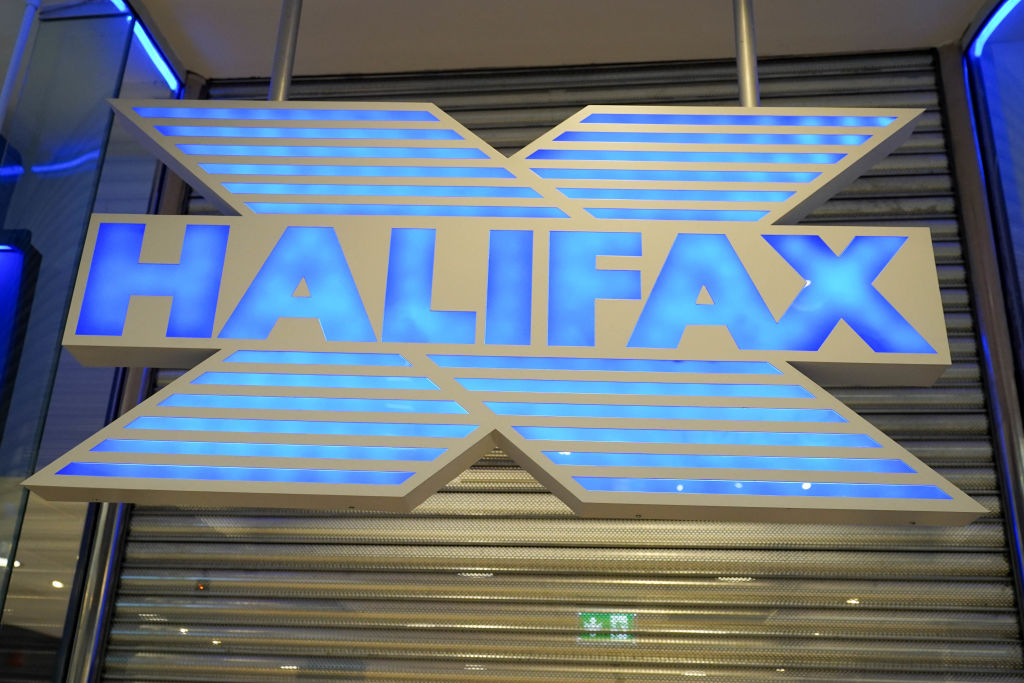Which house price index is the best?
There are at least five indices measuring house prices. But which house price index is the best?

Laura Miller

Get the latest financial news, insights and expert analysis from our award-winning MoneyWeek team, to help you understand what really matters when it comes to your finances.
You are now subscribed
Your newsletter sign-up was successful
Want to add more newsletters?

Twice daily
MoneyWeek
Get the latest financial news, insights and expert analysis from our award-winning MoneyWeek team, to help you understand what really matters when it comes to your finances.

Four times a week
Look After My Bills
Sign up to our free money-saving newsletter, filled with the latest news and expert advice to help you find the best tips and deals for managing your bills. Start saving today!
It's probably not much of a surprise that property-obsessed Britain has at least five main indices measuring house prices.
Nationwide, Halifax, the Office for National Statistics (ONS), Zoopla and Rightmove all produce data reports – eagerly awaited by home buyers and sellers every month – that detail the ups and downs of home values across the country. But their conclusions on the state of the housing market are all slightly different, which can make things a little confusing.
So, how do the property indices differ from each other? We take a look at what each one measures and which house price index is the best.
MoneyWeek
Subscribe to MoneyWeek today and get your first six magazine issues absolutely FREE

Sign up to Money Morning
Don't miss the latest investment and personal finances news, market analysis, plus money-saving tips with our free twice-daily newsletter
Don't miss the latest investment and personal finances news, market analysis, plus money-saving tips with our free twice-daily newsletter
Nationwide house price index
The Nationwide house price index is one of the most popular indices used in the UK, with data stretching back to 1952.
The data used is the lender’s valuation at the mortgage-approval stage. This may differ from the actual sale price, but the idea is that it is near enough to the end of the home-selling process to offer a more realistic snapshot than the initial asking prices.
The index is mix-adjusted, which means it tracks a representative home by giving a relative weight to each property based on characteristics like the number of bedrooms. This prevents price disparities from arising if different types of properties are sold each month.
Nationwide releases HPI data each month, with the latest figures saying house prices were up 1.8% in the year to November. Meanwhile, prices between October and November were up 0.3%. Nationwide said the average UK house price was £272,998 in November.
The building society also said the number of mortgage approvals was similar to pre-pandemic levels as the market showed signs of resilience.
Halifax house price index
Halifax’s house price index has data going back to 1983 and, like the Nationwide index, is based on the bank’s valuation at the mortgage-approval stage. A standardised house price is calculated using this data, and property price movements on a like-for-like basis are analysed over time.
The latest HPI figures published by Halifax reveal house prices grew by 0.7% in the year to November, down from 1.9% in the year to October. Average property price growth between October and November was flat, Halifax said. The average house price in November was £299,892, according to the lender.
The lender said it expected falling interest rates to lead to property price growth at the end of 2025 and into 2026.
Rightmove house price index
Rightmove’s house price index differs from Nationwide and Halifax in that it is based on asking prices. The asking price is usually determined at the very first stage of the home-buying process. The index also excludes inner London.
One obvious advantage of using asking prices is that it picks up price trends early on. But the asking price can differ drastically to the price at which a house is eventually sold.
One of the main issues with the Rightmove index is that it mirrors market sentiment rather than solid data, according to London estate agent Petty Son & Prestwich. There is also no guarantee that a house that's advertised will sell.
Despite this, the house price report is useful for data on discounts and how quickly properties are going under offer, which gives a good indication as to the health of the property market.
Rightmove’s latest figures suggest asking prices fell 0.6% in the year to December, while experiencing a bigger 1.8% drop between November and December. The average asking price in December was £358,138, £6,695 less than the month before, Rightmove said.
ONS/Land Registry house price index
Each month, the Office for National Statistics calculates official house price figures using sale data from HM Land Registry, Land and Property Services Northern Ireland, and Registers of Scotland. This is the most authoritative house price index.
The ONS index uses a statistical method called hedonic regression that adjusts the data to account for characteristics like the number of bedrooms.
Unlike the Halifax and Nationwide indices, which are based on mortgage approvals, the ONS data also includes cash purchases. This gives a broader view of the market.
One downside is that the index has a time lag of around two months, as it takes a little time to process conveyancers’ submissions to the Land Registry after a sale is completed.
According to the ONS, house prices rose by 2.6% in the year to September, but fell by 0.6% month-on-month. It said the average property price across the UK was £271,531 in September.
Zoopla house price index
The Zoopla house price index uses sold prices, mortgage valuations, and data for agreed sales to calculate house prices for any given month. In other words, it tracks achieved prices, which is a key difference from an asking price index. Tracking homes that are “sold subject to contract” is a better indicator of current house prices, as the asking price often does not reflect the sale price.
The index also provides data on the number of days it takes to sell a house, giving prospective sellers an idea of how long it will take for the property to sell. This measures the time from the initial listing to going under offer.
Unfortunately, Zoopla’s index, like all other indices on this list, relies on a limited pool of data with some degree of time lag.
Latest figures, according to Zoopla, suggest house prices rose annually by 1.3% in the year to October, up £3,340 to £270,200. Between September and October, prices increased by £200 (0.07%) from £270,000.
UK Residential Market Survey by RICS
UK Residential Market Survey by RICS
The UK Residential Market Survey by the Royal Institution of Chartered Surveyors (RICS) is very different to all other indicators in this list. It is a monthly sentiment survey of chartered surveyors operating in the residential sales and lettings markets.
It measures the percentage of surveyors reporting house price increases versus declines. While it doesn't provide an average house price for a specific month, it serves as an indicator of current and future conditions in the UK residential sales and lettings markets.
Surveyors are asked 18 questions on various metrics, such as sales, enquiries, listings, and house prices, and are required to report whether these have increased, remained the same or decreased.
A positive net balance indicates that more surveyors are observing price increases, signalling a strong housing market. Conversely, a negative net balance suggests that more surveyors are witnessing price decreases, indicating a more fragile housing market.
For instance, if 15% of surveyors reported an increase in buyer inquiries and 20% reported a decrease, the net balance would be -5%.
The latest market survey by RICS revealed a net balance of -19% of respondents saying house prices had increased over the previous three months, compared to -17% of respondents the month before.
Get the latest financial news, insights and expert analysis from our award-winning MoneyWeek team, to help you understand what really matters when it comes to your finances.
Katie has a background in investment writing and is interested in everything to do with personal finance, politics, and investing. She previously worked at MoneyWeek and Invesco.
-
 Should you buy an active ETF?
Should you buy an active ETF?ETFs are often mischaracterised as passive products, but they can be a convenient way to add active management to your portfolio
-
 Power up your pension before 5 April – easy ways to save before the tax year end
Power up your pension before 5 April – easy ways to save before the tax year endWith the end of the tax year looming, pension savers currently have a window to review and maximise what’s going into their retirement funds – we look at how
-
 Average UK house price reaches £300,000 for first time, Halifax says
Average UK house price reaches £300,000 for first time, Halifax saysWhile the average house price has topped £300k, regional disparities still remain, Halifax finds.
-
 UK house prices remained flat in May, Halifax finds
UK house prices remained flat in May, Halifax findsNews Average house prices fell 0.1% month-on-month, meaning they have remained relatively static for three consecutive months on the Halifax HPI.
-
 Halifax: House price slump continues as prices slide for the sixth consecutive month
Halifax: House price slump continues as prices slide for the sixth consecutive monthUK house prices fell again in September as buyers returned, but the slowdown was not as fast as anticipated, latest Halifax data shows. Where are house prices falling the most?
-
 Rents hit a record high - but is the opportunity for buy-to-let investors still strong?
Rents hit a record high - but is the opportunity for buy-to-let investors still strong?UK rent prices have hit a record high with the average hitting over £1,200 a month says Rightmove. Are there still opportunities in buy-to-let?
-
 Pension savers turn to gold investments
Pension savers turn to gold investmentsInvestors are racing to buy gold to protect their pensions from a stock market correction and high inflation, experts say
-
 Where to find the best returns from student accommodation
Where to find the best returns from student accommodationStudent accommodation can be a lucrative investment if you know where to look.
-
 The world’s best bargain stocks
The world’s best bargain stocksSearching for bargain stocks with Alec Cutler of the Orbis Global Balanced Fund, who tells Andrew Van Sickle which sectors are being overlooked.
-
 Revealed: the cheapest cities to own a home in Britain
Revealed: the cheapest cities to own a home in BritainNew research reveals the cheapest cities to own a home, taking account of mortgage payments, utility bills and council tax
